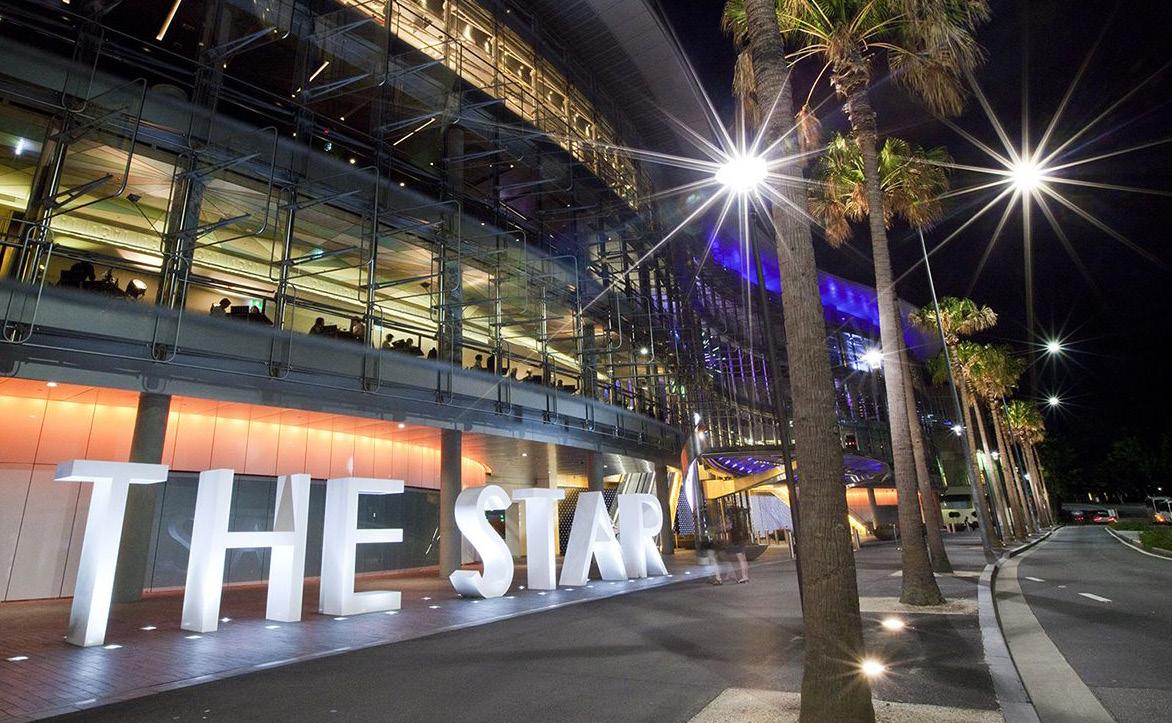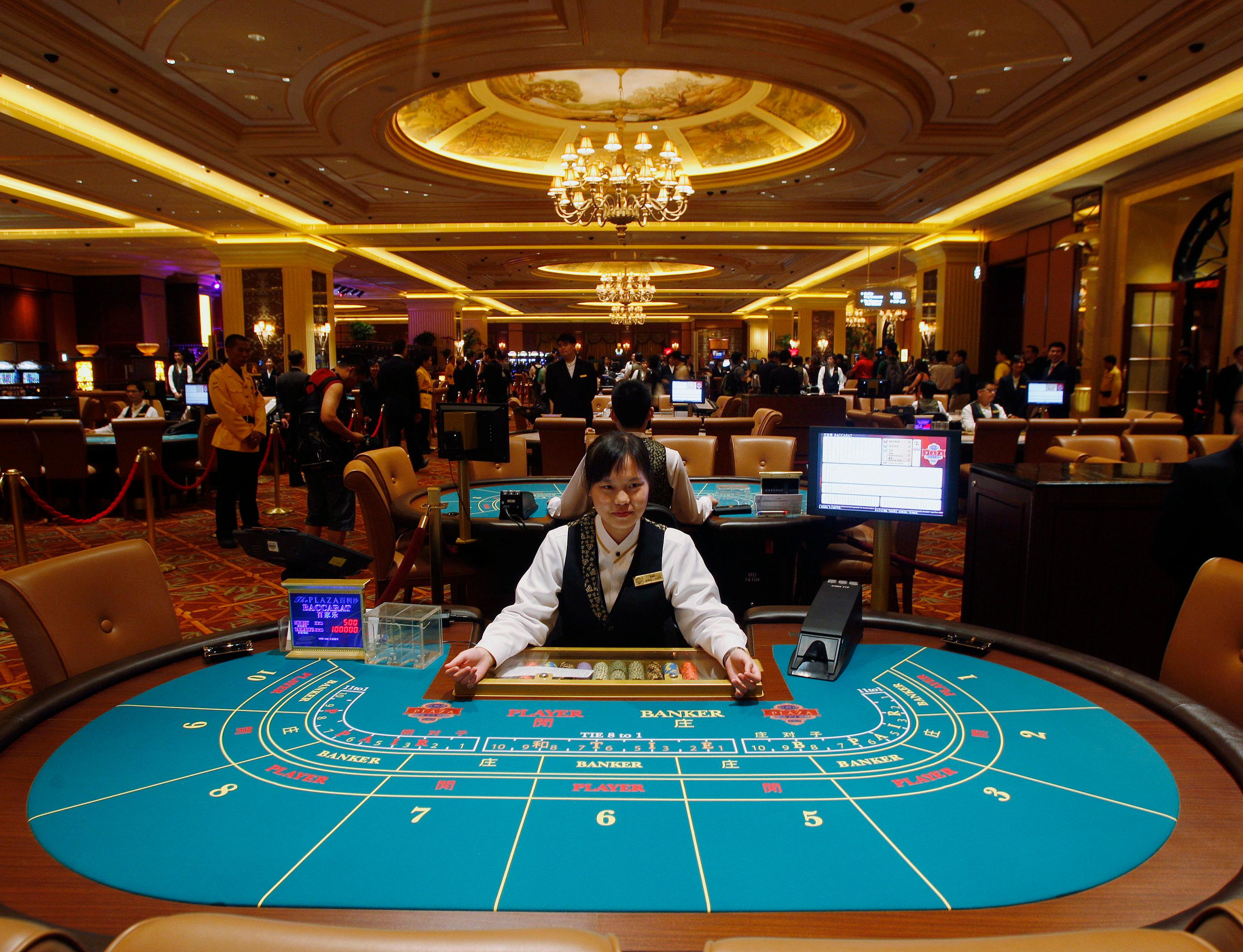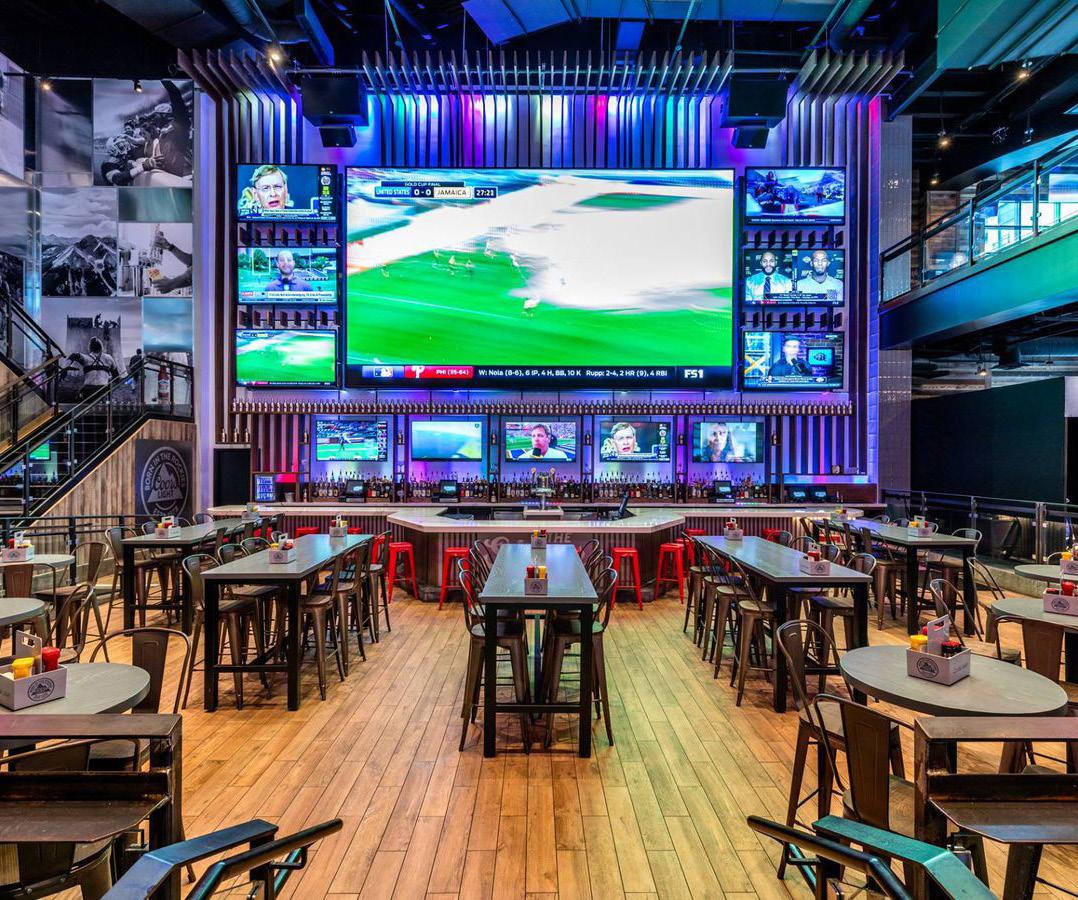
10 minute read
AUSSIE REGULATORY ISSUES
How Bad Is Australia’s Current Regulatory Crisis?
In recent months, Australia’s native casino industry has presided over somewhat of a regulatory crisis. Although the number of culprits in this unfortunate episode are limited, the depth of their disregard for the rules has caused significant alarm across the sector. Indeed, it raises the fundamental question of whether these acts of serious contravention were isolated to a select group of rogue operators, or if their practices are characteristic of approaches amongst other gaming companies. Furthermore, and perhaps of greater concern, is the fact that these disparaging revelations have also exposed inefficiencies within local regulatory and governmental procedures, and even raised question marks with regards to their own integrity.
Crown Resorts, for so long the lynchpin of the Aussie gaming landscape, has emerged bruised and battered from a series of ongoing criminal investigations. Numerous weeks of probes and reviews, alongside a considerable amount of soul-searching, has left the casino operator with an extensive to-do list. A set of actions that it must address both swiftly and effectively; if it wants to keep its ahead above water.
Indeed, the latest enquiry, the third of its type in an extremely short period, seems to have delivered the final ultimatum to Crown. The ailing firm must now get it’s your house in order, or face total closure. The recent analysis of Crown Perth’s fiscal operations returned equally grave results as the investigations conducted into it’s Melbourne and Sydney venues prior. The Western Australia site, based at the Burswood Complex in central Perth, was subjected to an eye-watering 59 recommendations following a brutal dressing down by the Royal Commission. The in-depth study highlighted a disturbing array of financial practices. This included a malfunctioning detection system for unearthing instances where money laundering has occured, links to criminal junket networks, and complete failures in their social responsibility towards vulnerable groups. The Royal Commission used the rather euphemistic description of ‘numerous deficiencies’ to summarize their findings. Now, due to earlier issues cited at casinos in Melbourne and Sydney, the under-pressure concessionaire finds itself ultimately on a two-year probation period. Indeed, the Royal Commission has determined that the staggered terms of its remediation programme must be met throughout the 24-month period, or the group will be permanently revoked of its gaming license.
Crown are already walking a tightrope at its Melbourne facility, located on the banks of the city’s Yarra River. AUSTRAC, the Australian Transaction Reports & Analysis Centre, has initiated legal proceedings against the group, after a dual investigation into Crown Melbourne and Crown Perth, with the latter site reviewed prior to the Royal Commission’s involvement. Both outlets were judged to have fell well short of industryapproved anti-money laundering and counter-terrorism financing measures, and also failed to establish robust compliance around customer registration and wagering behaviour. Unfortunately for Crown, these developments served to add further scrutiny on its fledgling Sydney site, situated within the
Barangaroo area of the city’s commercial district. Since its creation, the luxurious resort has been used in a non-gaming capacity, given the gradually increasing focus on the company’s alleged illicit activities. A gambling license has been provisionally allocated, but the jury is well and truly out on how long this seemingly brief stay of execution will last.
However, as referenced, Crown didn’t materialise as the only losers amidst this debacle. The Royal Commission, whilst drawing its conclusions on events at Burswood, also discovered serious inadequacies in the efforts undertaken by the Western Australia regulator, and also that of local government ministers. The Gaming and Wagering Commission were reprimanded for their inability, despite overwhelming evidence, to address Crown Resorts’, to put it mildly,undesirable enterprises. Rather feebly, the regulator identified an internal company stakeholder as being particularly ‘persuasive’, suggesting that their evaluation of transactions was largely influenced by this individual. Against a backdrop of compelling allegations in other provinces, the GWC’s excuse for inactivity seems, at best, extremely weak. Western Australia’s government officials were slightly more candid in their response, accepting full accountability for their role in Crown Perth’s demise. Toni Buti, the territory’s Racing and Gaming minister, expressed his regret at the legislature’s apparent lack of control over its gaming space, and promised to heap further pressure on the region’s regulatory organization.
‘’It is clear that over decades, standards have eroded, integrity has been lost, and the transparency of Western Australia’s casino operators has diminished. In many cases, Crown has demonstrated poor corporate citizenship’’ said minister Buti, in the wake of the Royal Commission’s report. He went onto add, ‘’it is a privilege to hold a gambling license in Western Australia, and the Royal Commission has shown that Crown has, at times, abused that privilege. Crown needs to do better but the state’s regulator also needs to do better’’. Yet, the drama hasn’t just been reserved for Crown, the largest casino heavyweight in the land down under. This disastrous chapter in Australia’s regulatory history has been further accentuated by fresh allegations leveraged towards a different concessionaire; the Star Entertainment Group. Indeed, full details are yet to be uncovered, but it seems the Brisbane-based entity have followed in the footsteps of their much-maligned competitor, by engaging in several illegal financial acts. A public hearing has been set-up in response to recent concerning reports, however, it seems now that initial flags raised in October last year were built on legitimate claims of wrongdoing. It’s understood that Star’s New South Wales venue, again located in Sydney, conspired with organized criminal syndicates, facilitated fraud on an unprecedented scale, and succumbed to unregulated foreign interference within its operations. Furthermore, an examination into Star Sydney’s lamentable approach, conducted by a small band of local media outlets,


identified a policy of targeting ‘high-roller’ players with criminal connections, in order to generate additional funds from its illegal channels. Only last month, Star declared that it had accidentally underpaid its employees by a colossal A$13m ($9.78m) after a routine six-year payroll review. Given the company’s chronic administrative failures, this hardly came as a surprise. Visibility of any pending punishments are yet to surface; nevertheless, it’s hoped that sanctions will be proportionate to the scale of the operators’ transgressions.
However, has the shame, public embarrassment, and potential of further penalties been enough to warn off Crown Resorts, Star Entertainment, and any other suitors from engaging in this sort of activity? Perhaps.
The two organizations have certainly made the right noises. Crown has already stated its intention to become ‘a leader in the industry’ when it comes to compliance and social responsibility. This rhetoric will surely be taken with a pinch of salt amongst Australia’s gambling ranks, nevertheless, the under-fire group have started to put their money with their mouth is. The firm’s rather over-worked attorney, Kanaga Dharman and a, has stated that improvement measures to address issues have been delivered at ‘’great financial cost’’. Steve McCann, the Melbourne-based operators chief executive, was also quick to highlight the level of investment, stressing that funds have already been directed towards the development of its ‘people, systems, processes, culture’ and that there is renewed ‘focus on responsible gaming and the prevention of financial crime’. Moreover, investment firm Blackstone Group, headquartered in New York, looks to have finally struck a deal to acquire the Aussie operator. The company had flirted with a takeover last Spring, but are now just awaiting regulatory and shareholder approval of a revised bid placed in February this year. This could pre-empt a radical brand makeover, and flush out misguided policies and procedures. Crown’s outgoing board of directors may also attest to an about turn in approach, with nearly all of the firm’s senior leadership team having left as a result of the chaos. However, they’re not the only casualties of this regrettable affair.
Matt Bekier, former head of Star Entertainment, is the latest to exit stage right. The much-criticized leader stepped down at the end of March, with an internal spokesperson announcing that ‘‘Bekier said the right thing to do was for him to take responsibility’’ However, interestingly, an official departure date for the exiting CEO is yet to be confirmed.
It’s hoped that this continuing soap story will provide a warning shot to the sectors other gaming powerhouses, and echo around the rest of Australia’s gambling battlegrounds. True, Nicole Rose, the CEO of AUSTRAC, whose organization so ruthlessly pulled apart Crown’s Western Australia and Victoria enterprises, delivered strong words of caution. In the wake of her team’s findings, she stated, ‘’this is an important reminder to all casinos in Australia that they must have a strong anti-money laundering programme in place to protect their business and community from serious and organized crime’’.
Whether Rose’s chastising comments will be enough to deter Aussie’s casino concessionaires from veering towards illicit financial endeavours remains to be seen. However, the next misguided operator may not be afforded the same level of patience as the industry’s recentregulatory rule-breakers.
Macau Hopes Rise As Guangdong Restrictions Ease

China’s tough COVID curbs have continued to undermine the commercial performance of Macau’s six casino operators in recent months. As many native governments ease long-held restrictions, a surge in Chinese cases has led Beijing to intensify controls on travel and social freedoms.
However, casino concessionaires in the semi-autonomous region have received a modest shot to the arm this week, as travel stipulations into Macau from nearby Guangdong begin to very slowly relax. Visitation from the Chinese province is often perceived as the lifeblood of the city-states gambling sector, with colossal numbers regularly pouring over the border before the pandemic. Macau’s Novel Coronavirus Response and Co-ordination Centre announced yesterday that as of this morning, persons entering the territory from Guangdong would only have to produce a negative COVID-19 test result within 48 hours, as opposed to the24hours timeframe installed in midMarch. The change may seem slight, but for a state starved of footfall, any loosening of limitations will feel like a significant boost. Indeed, the Macau Government Tourist Office has already announced that it now expects daily visits to eclipse 20,000 during the May Golden Week celebrations next month.
Nevertheless, the overriding feeling still seems to be one of caution and unease. Industry analysts Berstein Limited said yesterday that Macau’s April’s gross gaming revenue will ‘continue to be weak’, a trend they assume could well carry on until May. Vitaly Umansky, a researcher based at the firm, also emphasized the increasing restrictions on other regions, ‘’The city’s arrivalquarantine requirement has extended to travellers from over 40 cities in 23 provinces- approximately two-thirds of all Chinese provinces’’
Any persons travelling into Macau from outside China are still subjected to strict quarantine rules. Indeed, the mainland is the only territory whereby visitors need not engage in an isolation period.



Massachusetts Sports Betting Moves Closer

Massachusetts protracted journey towards establishing a native sports betting industry has received a huge shot in the arm this week, after a specialist Senate Committee advanced House Bill 3933 to the next legislative stage.
Gambling stakeholders in the Bay State have had to endure a prolonged period of inactivity, with lawmakers in the Senate Ways and Means Committee, the body charged with processing the proposal, hesitant to progress the bill without presiding over a lengthy due diligence campaign. As of last Friday, this has now been satisfactorily completed.
House Bill 3933, which details a provision for three commercial casinos to be constructed within the state, was originally forwarded through the House of Representatives last summer. The proposal gained unilateral support in the House, with 156 out of 159 members voting in favour of the provisional legislation. Nevertheless, the bill has sustained some changes as a by-product of Senate readings, and therefore looks a little different to the original plan passed by the House of Representatives in July 2021. The directive permitting bets on local collegiate teams has been stripped out, and taxation rates have been subjected to a considerable increase. In the initial draft of HB 3933, and operator was set to be taxed at a rate of 12.5% of retail revenue, and 20% of online GGR, this has now been adjusted to 15% and 35% respectively.
The bill will now be officially debated in the Senate chamber, with discussions commencing this Thursday, 28th April.




